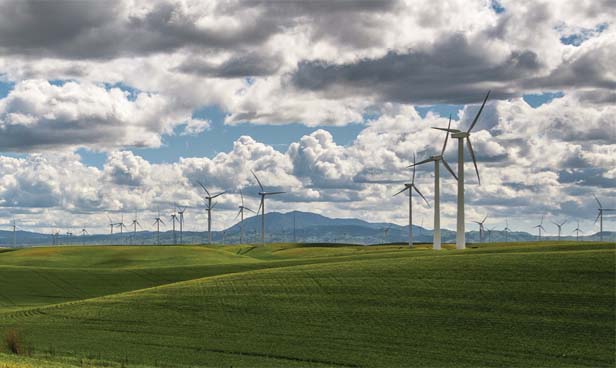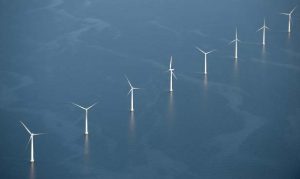
How active consumers can facilitate greater integration of renewables
5th October 2021
Renewables, recycling, and restoration
5th October 2021Decarbonising Europe’s economy

Director responsible for the Green Transition and Energy System Integration in DG Energy at the European Commission, Catharina Sikow-Magny, says that ambitious targets and agreed pathways are the cornerstones of plans to decarbonise Europe’s economy.
Speaking in the context of the European Climate Law, which made endorsement of climate neutrality of the European Union by 2050 and the European Council’s decision to increase the greenhouse gas reduction target to 55 per cent by 2030 legally binding, Sikow-Magny assesses good progress across the EU in reaching the collective 20 per cent target by 2020 for renewables.
However, the Director of energy system integration admits that, although one-third of the EU’s electricity is being generated by renewable sources, other sectors including transport and heating and cooling have been slow to decarbonise across the EU.
Acknowledging that this overall assessment correlates with what is happening in Ireland specifically, Sikow-Magny expresses the Commission’s satisfaction that Ireland has entered into statistical transfers to meet its 2020 target, explaining that such use serves the exact purpose of why the transfers were introduced under the Renewables Directive.
The Director states that despite evident progress, ambitions across the EU must now be increased to meet the new 55 per cent greenhouse gas target reduction by 2030.
“In renewables this means that we need to look to a more ambitious target probably somewhere between 38 to 40 per cent for 2030, according to our assessments, significantly higher than the existing 32 per cent target,” she explains.
Sikow-Magny outlines that for electricity this probably means a target of around 65 per cent of all electricity consumed across the EU coming from renewable sources. To this end, the EU Commission representative welcomes the Irish Government’s aim to position itself as a leader in this area and its 70 per cent renewable electricity target by 2030.
However, Sikow-Magny stresses the importance of a focus across EU member states not solely on the targets but also systems to make renewables work, including storage, flexibility, interconnection, and industrial processes.
“These are important challenges, and we need to ensure that high renewable production will be matched with high reliability and security of supply,” she adds.
Pointing to how the EU Commission is seeking to address these challenges, the Director says that the implementation of the legal acts of the Clean Energy Package, in a timely manner, is critical. Following the transposition deadline of the Electricity Directive at the end of 2020, the Renewables Directive had to be transposed into national law by member states by June 2021.
The Director believes that the Renewables Directive will underpin and bring about a circular economy and biodiversity protections.
Alongside implementation of the Clean Energy Package, the Commission is currently reviewing all legislation across all sectors to see where improvements are needed to reach the 55 per cent target.
“We need to assess the renewables target but we also need to ensure that our renewables target is underpinned by all of the relevant elements from the Energy System Integration Strategy, which outlines how the EU Green Deal can be implemented in the energy sector,” explains Sikow-Magny.
“We have already started some of this latest legislative work. Last December, we proposed a review of the Trans-European Networks guidelines to ensure it is fit for the future and amongst other things, while keeping a focus on electrification and electricity interconnection, we will start looking at how to bring renewable gases and hydrogen into the system.”
By the end of 2021, the EU Commission plans to propose a package on how to decarbonise gas, how to bring hydrogen to the market and how to diffuse methane emissions from different sectors.
“We have a busy year ahead of us not just in implementation but also preparing new legislation to improve and raise the ambition,” she summarises.
Offshore
Turning to Ireland’s decarbonisation journey, the EU Commission representative highlights interest in the EU strategy on offshore renewable energy published in November 2020. Sikow-Magny outlines that the strategy aims to tap into the huge potential of offshore renewable energy and to enshrine the EU offshore industry as a global powerhouse in offshore technologies.
“Our aim is to remove barriers so that we can reach a goal of in the region of 300GW of offshore wind and 40GW of ocean energy across our sea basins by 2050,” she explains.
“The strategy presents a way to shift our thinking to support the whole value chain in two main areas. Firstly, we need to move from national borders in the sea to look at the best sea basins globally and together. Regional co-operation is key. We must encourage industry to work with us and not in silos.
“Secondly, we need the right electricity grid to bring power onshore efficiently and directly to consumers. The Trans-European Energy Networks guidelines review proposes ambitions transformations on grid development, including the Celtic Interconnector as one of its flagship projects.
“The ambitious offshore wind target of 5GW that we have seen in the Irish strategy by 2030 is an important contribution to this overall offshore strategy and we are looking forward to continuing the cooperation in this area with Ireland.”
Just transition
Another critical element of decarbonisation success highlighted by Sikow-Magny is the EU Commission’s investment strategy to ensure a just transition.
“European regions differ one from the other in resources and carbon intensity and therefore, an important element of the Green Deal is to ensure that the energy transition also brings social benefits to all of our regions. Transformation of the economy must be fair and ensure that nobody is left behind.
“A just transition will bring more sustainability and more resilient Europe in all dimensions, be they environmental, economic or social. We have noted again with appreciation and interest the design of Ireland’s new RESS scheme with quite innovative solutions to support participation and engagement of local communities. This is, of course, key in any change and investment in infrastructure project.
Concluding, Sikow-Magny says: “2030 is tomorrow. Nine years is an extremely short time in the energy industry, but we believe our ambitious targets are realistic. Over the past decade we have seen the cost of renewable energy decrease dramatically. For wind, costs have fallen in the region of 70 per cent and in solar PV, close to 90 per cent. We expect similar cost reductions in the new areas such as hydrogen, electrolysis, and decarbonising gas through waste.
“All this is possible when we have an ambitious target and when we have an agreed pathway. We can be confident that despite being very ambitious we also have a very realistic plan ahead of us. The key is to work together to make change happen.”

